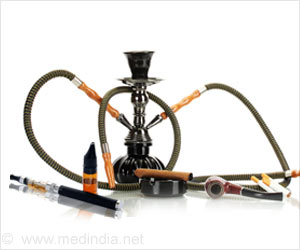
‘Only two gene changes were observed when human airway tissue was exposed to glo (tobacco heating product) vapour compared to thousands of gene changes on exposure to cigarette smoke.’
Tweet it Now
'Products like glo are very new and consumers and regulators alike want as much information as possible. That is why testing the impact of glo vapour compared to smoke is so important,' explains Dr James Murphy, Head of Reduced Risk Substantiation at British American Tobacco. 'Here we are observing gene expression, which can give an indication of whether exposure to an aerosol, like smoke or glo vapour, has had particular toxic effects.' 'Our results clearly show that cigarette smoke triggers a robust gene expression response,' Murphy says. 'However, exposure to vapour from glo, a tobacco heating product (THP), has very limited impact on gene expression compared to smoke--there is a striking difference!'
glo is part of an ever-increasing portfolio of potentially reduced risk products being developed by British American Tobacco as an alternative to traditional cigarettes.
Human Tissue
In this study, scientists at British American Tobacco used human cells grown in the lab to test the impact of glo vapour compared to smoke and air.
Advertisement
Using a robot that mimics how consumers use their products, this tissue was exposed to air, smoke from a reference cigarette (3R4F), or vapour from glo continuously for one hour. Then, to measure the cell response, the scientists mapped the genes that were switched on and off at 24 hours and 48 hours after the one-hour exposure.
Advertisement
'Our technology is state-of-the-art', says Murphy. 'We have the capability to profile the activity of tens of thousands of genes simultaneously, providing more information than ever before on the genetic profile of exposed cells.'
Gene Profiling
Results show that cigarette smoke triggered thousands (2809) of changes in the expression of genes strongly involved in the development of lung cancer, inflammation and fibrosis. In contrast, only two genes were affected by exposure to glo vapour*. (Figure 1).
These results, which are published in the journal Scientific Reports (doi: 10.1038/s41598-018-19627-0) add to evidence that glo vapour may cause less damage to cells as compared to cigarette smoke. Future studies will look at the impact on human tissues of more intense and longer exposure to this vapour.
Previous research conducted by British American Tobacco has shown that glo vapour contains around 90-95% less toxicants compared to cigarette smoke from a reference cigarette, in terms of the priority list of nine toxicants that the World Health Organisation recommends reducing in cigarette smoke*.
British American Tobacco's Commitment to NGPs
British American Tobacco has invested more than US$2.5 billion over the last six years in developing and commercialising a world-leading portfolio of products in the Next Generation Products (NGPs) category. British American Tobacco currently has NGPs in 16 markets with plans to be in 40 countries by the end of 2018. BAT has a bold ambition to realise revenue of more than £5bn from NGPs by 2022.
Source-Eurekalert














